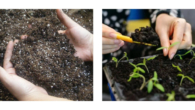
12 clever tricks, with the help of which fraudsters easily defraud tourists
0

Fraudsters use various tricks to deceive gullible tourists. Here are some of the most common schemes, knowing about which will help you avoid trouble when traveling.
“Fake baby”
This trick looks completely innocent: a woman with a baby wrapped in a blanket accidentally releases it. When the victim bends down to pick up the “baby”, the attackers quickly search her pockets and bags. During this maneuver, other scammers may be willing to help, but in reality they are also out to rip you off.
A Letter to Parents
A poorly dressed child approaches you with tears on his face. eyes, asking to write a letter home. While writing this touching story, he will begin to demand money from you, using a masterful manipulation of your emotions. It can be very convincing, and you may feel pressured to help without realizing you're falling into a trap.
“Finding the Wallet”
When you come across a wallet on the ground, your first reaction is to check yours. At this point, the watchful eyes of fraudsters are watching your actions, waiting to steal your wallet while you are distracted. They may even engage in activities that distract you, creating the illusion that they are helping you.
“A rose for your lady”
You may be offered to buy a rose at an inflated price. If you refuse, the woman will begin to humiliate you, forcing you to buy a flower, which now costs even more. Often this trick is accompanied by pressure from other scammers, who may also intervene, creating feelings of guilt.
“Friendship Bracelet”
A rather smiling stranger will offer exchange bracelets. While you are busy, another scammer will take your valuables from your pockets or bag. This method is especially popular in tourist areas, where tourists often trust innocent gestures.
“Finding a ring”
When you think you've found a gem, scammers approach you with an offer to sell it. They convince you that it is a priceless item worn by the king himself in an attempt to exploit your hopes for gain. You can be influenced and end up giving your money for something that has no value.
“Fake Ticket”
When you are standing in line for tickets, a man may come up to you and offer to buy cheaper tickets. Be careful: these tickets often turn out to be fake, leaving you with no money and no way to get to the event. This is one of the most common scams at concerts and events.
“Stain on clothes”
The scammer discreetly spills liquid on your clothes, after which other “well-wishers” offer to help. As long as you trust them, your stuff can also disappear. This trick is very effective, because tourists often respond to such situations with a desire to help.
“Check number”
Two men in uniform knock on your door, introducing themselves as hotel employees. While one of you is talking, the other can steal your stuff. They may try to convince you that this is standard procedure to distract you from your property.
“Free Massage”
You are offered a free massage on the beach. After a few minutes, it can become paid, and you can be forced to pay a lot of money. This method often uses manipulation techniques to convince you that it was your idea.
“Fake Cop”
A man in uniform may ask to check your wallet for counterfeit money. After verification, you will be left without a single note because the scammer will steal your money before you are ready. This trick usually works on gullible tourists who are unaware of the scam.
“Love at first sight”
Girls can get to know tourists by inviting them to dinner. But before you know what's happened, she'll be gone, leaving you with a big bill. This scheme may involve threats or manipulation to get you to pay.









Leave a Reply